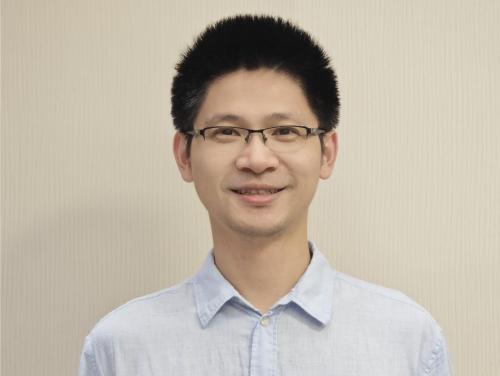Faculty
Dr. Yang Xu, is currently an Associate Researcher (Researcher)at the Department of Computer Science and Engineering, Southern University of Science and Technology (SUSTech) in China. He received a Ph.D in Information Sciences and Technology from The Pennsylvania State University, USA. Before joining SUSTech, he worked as Assistant Professor at the Department of Computer Science, San Diego State University in the United States. Currently he is the PI of Computational Linguistics and Consciousness Sciences Lab (CLCS) and his research interests include Computational Linguistics, Artificial Intelligence, Cognitive Science, and psycholinguistics.
Our lab is actively recruiting self-motivated graduate and undergraduate students (post-docs as well). You are more than welcome to send your resume to xuyang@sustech.edu.cn
Published Articles
1. Yang Xu and Yang Cheng. Spontaneous gestures encoded by hand positions improve language models: An information-theoretic motivated study. 2023. (To appear in ACL 2023; CCF-A)
2. Yang Xu, Yang Cheng, and Riya Bhatia. Gestures are used rationally: Information theoretic evidence from neural sequential models. In Proceedings of the 29th International Conference on Computational Linguistics, pages 134–140, Gyeongju, Republic of Korea, 2022. International Committee on Computational Linguistics. (CCF-B)
3. Bruce I. Gaynes, Mark B. Shapiro, Jie Xu, Abel Saju Augustine, Yang Xu, and et.al. Hierarchical data visualization of experimental erythrocyte aggregation employing cross correlation and optical flow applications. Microvascular Research, 143:104386, 2022
4. Yang Xu. Global divergence and local convergence of utterance semantic representations in dialogue. In Proceedings of the Society for Computation in Linguistics, volume 4, pages 116–124. 2021
5. Yang Xu and Zheng-sheng Zhang. Historical changes in semantic weights of sub-word units. In Adam Jatowt, Nina Tahmasebi, Yang Xu, and Lars Borin, editors, Computational Approaches to Semantic Change, pages 169–187. Language Science Press, 2021
6. M Alex Kelly, Yang Xu, Jes′us Calvillo, and David Reitter. Which sentence embeddings and which layers encode syntactic structure? In Proceedings of the 42nd Annual Meeting of the Cognitive Science Society, pages 2375–2381, 2020. (CCF-B)
7. Yang Xu, Jiasheng Zhang, and David Reitter. Treat the word as a whole or look inside? subword embeddings model language change and typology. In Proceedings of the 1st International Workshop on Computational Approaches to Historical Language Change, pages 136–145, Florence, Italy, 2019. Association for Computational Linguistics
8. Yang Xu, Jeremy Cole, and David Reitter. Linguistic alignment is affected more by lexical surprisal rather than social power. Proceedings of the Society for Computation in Linguistics, 2(1):349–352, 2019
9. Yang Xu, Jeremy Cole, and David Reitter. Not that much power: Linguistic alignment is influenced more by low-level linguistic features rather than social power. In Proceedings of the 56th Annual Meeting of the Association for Computational Linguistics (Volume 1: Long Papers), volume 1, pages 601–610, 2018. (CCF-A)
10. Yang Xu and David Reitter. Information density converges in dialogue: Towards an informationtheoretic model. Cognition, 170:147–163, 2018. (Impact factor: 3.65; CCF-B)
11. Yang Xu and David Reitter. Spectral analysis of information density in dialogue predicts collaborative task performance. In Proceedings of the 55th Annual Meeting of the Association for Computational Linguistics (Volume 1: Long Papers), pages 623–633, Vancouver, Canada, 2017. (CCF-A)
12. Yang Xu and David Reitter. Entropy converges between dialogue participants: Explanations from an information-theoretic perspective. In Proceedings of the 54th Annual Meeting of the Association for Computational Linguistics (Volume 1: Long Papers), pages 537–546, Berlin, Germany, August 2016. Association for Computational Linguistics. (CCF-A)
13. Yang Xu and David Reitter. Convergence of syntactic complexity in conversation. In Proceedings of the 54th Annual Meeting of the Association for Computational Linguistics (Volume 2: Short Papers), pages 443–448, Berlin, Germany, August 2016. Association for Computational Linguistics. (CCF-A)
14. Yang Xu and David Reitter. An evaluation and comparison of linguistic alignment measures. In Proceedings of Cognitive Modeling and Computational Linguistics (CMCL), pages 58–67, Denver, CO, 2015. Association for Computational Linguistics
15. Alexander G. Ororbia II, Yang Xu, Vito D’Orazio, and David Reitter. Error-correction and aggregation in crowd-sourcing of geopolitical incident information. In N. Agarwal et al., editor, Social Computing, Behavioral Modeling and Prediction, volume 9021 of Lecture Notes in Computer Science, pages 381–387. Springer, 2015
16. David Reitter, Yang Xu, Patrick Craven, Anik Sndor, R. Chris Garrett, E. Vince Cross, and Jerry L. Franke. Cognitive models predicting surprise in robot operators. In Proc. International Conference on Cognitive Modeling, pages 190–191, Groningen, Netherlands, 2015



